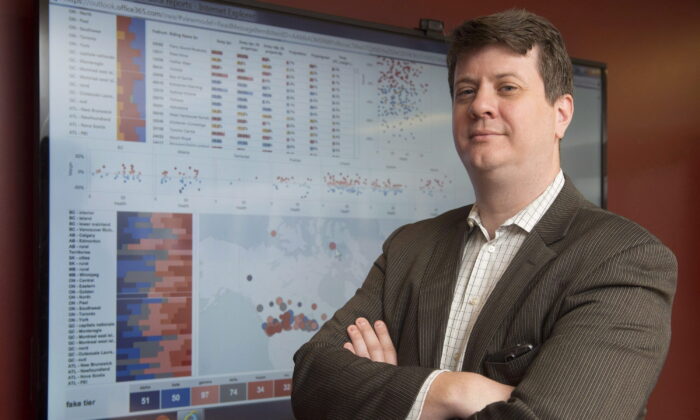
A senior adviser to Prime Minister Justin Trudeau told MPs that he was the one who briefed Trudeau during the 2019 election campaign after Canada’s spy agency reportedly warned the Liberal campaign about a candidate working in cahoots with the Chinese regime.
Jeremy Broadhurst, who works in the Prime Minister’s Office (PMO), was asked about the Sept. 28, 2019, briefing as he testified before the House of Commons Standing Committee on Procedure and House Affairs (PROC) on April 25.
Previous inquiries by PROC with the Trudeau government established that cleared Liberal Party officials had been briefed on that date by national security officials.
This information ties into Global News reporting that in late September 2019, about two days before the federal election nomination deadline, the Canadian Security Intelligence Service (CSIS) had warned the Liberals that one of their candidates was working with Beijing.
Global said that according to sources, now-MP Han Dong was a “witting affiliate in China’s election interference networks.”
Broadhurst told the committee he could not confirm the content of the briefing, but he said that those who received it “decided it would be right to inform the prime minister.”
“We needed to ensure that that was done safely and securely,” he added, and the briefing took place the next day as Trudeau was in Ottawa.
“I spoke to the prime minister alone,” said Broadhurst.
Katie Telford, chief of staff to the prime minister who testified before PROC on April 14, was also asked about the 2019 briefing to the Liberal Party and the Han Dong issue.
Telford told the committee she was “never involved in a conversation on the subject.”
Questions remain about what was shared during the reported CSIS briefing. Trudeau has not denied that it took place, but said it isn’t the role of the security agencies to decide who can run for political parties.
Conservative Party MP Blaine Calkins asked Broadhurst why Han Dong’s nomination was not revoked when there was still time to do so.
“It seems odd to me that if the security intelligence service of the country came to a political party bringing information of concern … about both the integrity of the process, about the integrity of the nomination process prior to a nomination deadline … why wasn’t that decision made?” he said.
“Again, I’m not going to discuss what was the content of those briefings. I think that you are making assumptions based on reporting that has not always been accurate,” replied Broadhurst.
After Global reported in February that Han Dong was part of a Chinese regime interference network, based on national security leaks, it published a subsequent report in March saying that Dong had advised Beijing in 2021 to keep the two Canadians Michael Kovrig and Michael Spavor in detention.
On the same day the report was published, Dong left the Liberal caucus to sit as an independent. He has since launched a defamation lawsuit against Global. He accuses the network of publishing “malicious, false, and defamatory articles and broadcasts.”
His statement of claim says that he had at least a dozen calls with Chinese diplomats as an MP.
“It is common practice for MPs to speak with diplomats as part of their work particularly if their constituents require access to services provided by these diplomats,” says the statement of claim.
Dong has not returned previous requests for comment from The Epoch Times.